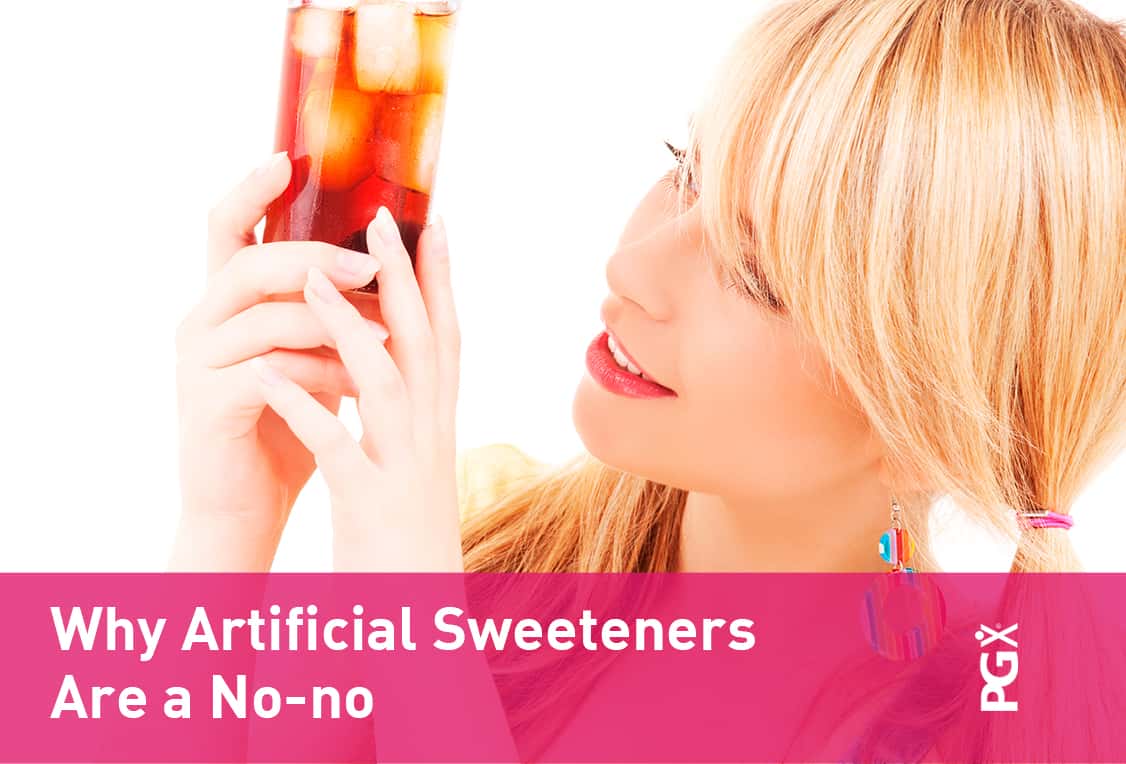
Artificial sweeteners actually fuel weight gain
Sugar – I can’t resist it, no matter how hard I try. An incurable sweet tooth has sabotaged many of us when it comes to healthy weight loss. While it’s tempting to swap out sugar for low calorie artificial sweeteners to keep that oh-so-irresistible taste, it’s not worth it, promise. Research suggests that artificial sweeteners actually fuel weight gain rather than prevent it.*
Here’s the thing about sweetness: your body uses it to predict how many calories you’re eating. Artificial sweeteners give your body that sweet kick without the corresponding calories, and that throws off the whole relationship between flavor and calories. They only get you halfway there – to your body, it’s like winning the lottery, but never getting any money. This can lead to a few things: increased appetite, weight gain, and reduced metabolism.[1] And just to rub it in, artificial sweeteners encourage sugar cravings and sugar dependence.[2] *
On the other hand, the calorie content in natural sweeteners can actually help keep you from overeating, according to research.[3] Opt for natural sweeteners such as maple syrup, honey, coconut sugar, raw cane sugar, and fruit juice.
Clearly, artificial sweeteners are off the menu – and there are more reasons than just weight loss to avoid these ingredients. But that doesn’t mean it’s open season on sugar! We’ve all taken a ride on the blood sugar roller coaster before, and sugar highs inevitably lead to sugar crashes. * Not to worry – these sweet solutions will satisfy, the healthy way.
If you’re a cream and two-splendas kinda gal
Switch back to sugar. Yep. Make it raw cane sugar if you like, but even straight up white sugar is better than the artificial stuff. For the more experimental among us, honey goes great with your morning cuppa.
If you can’t get through the day without a diet soda
Craving a sweet drink could mean your blood sugar is out of balance.* Add a protein-rich snack to your mid-morning routine, and skip the soda in favor of an energizing green juice, easy on the fruit.
If you want to sweeten a smoothie
Instead of adding artificial sweeteners, add a date, a pear, or a banana. Include PGX® in your smoothies for a nutrient-rich, fiber-full snack.
If your oatmeal is blah
And let’s face it, that’s just the way oatmeal is. Fiber or no fiber, it needs a little something to help it down. Try dried fruit and a drizzle of maple syrup – a little goes a long way. Maple syrup is still a natural sweetener, but it’s packed with bonus minerals.
If you just need a sweet fix
The conventional wisdom says, eat a piece of fruit. But no one craving a sugary snack wants to hear that. And an apple just won’t cut it, am I right? Try dressing that apple up with peanut butter – but make sure it’s no sugar added. Peanut butter is naturally sweet, plus it’s packed with protein.
But really, you just need a sweet fix
Hey, it happens. And when it does, I always go for a square or two of dark chocolate. Ok, sometimes three. A little indulgence (especially if it’s naturally sweetened!) is a part of any healthy diet.
*Note: Drink additional water (8 fl. oz.) after ingesting PGX. If you are taking medications, take one hour prior to or two hours after taking PGX.
* This statement has not been evaluated by the Food and Drug Administration. This product is not intended to diagnose, treat, cure or prevent any disease.
[1] Swithers, S.E., Davidson, T.L. (2008). A role for sweet taste: Calorie predictive relations in energy regulation by rats. Behavioral Neuroscience, 122:1.
[2] Yang, Q. (2010). Gain weight by “going diet?” Artificial sweeteners and the neurobiology of sugar cravings: Neuroscience 2010. The Yale Journal of Biology and Medicine, 83(2), 101–108.
[3] Yang, Q. (2010). Gain weight by “going diet?” Artificial sweeteners and the neurobiology of sugar cravings: Neuroscience 2010. The Yale Journal of Biology and Medicine, 83(2), 101–108.
